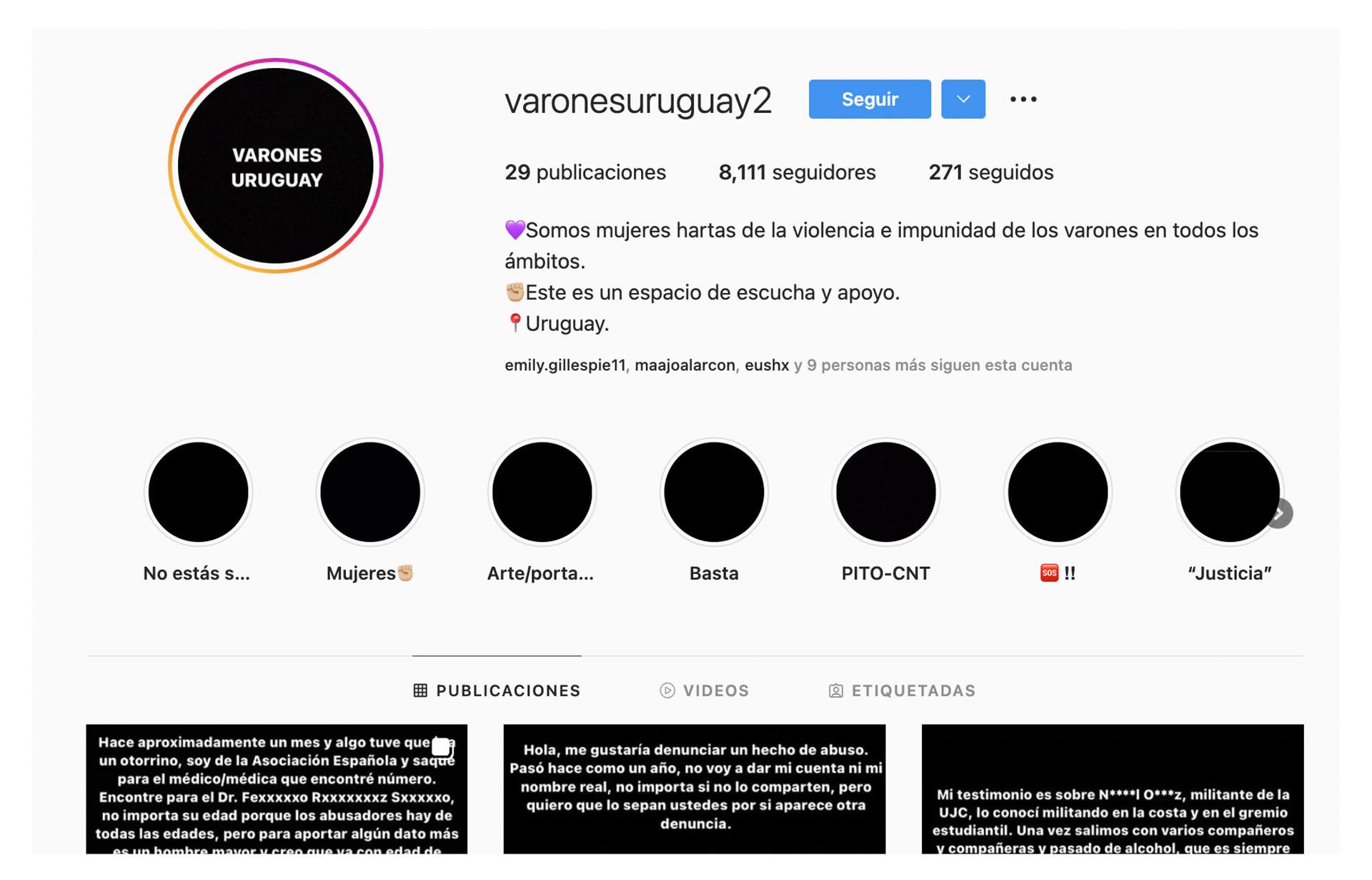
In Uruguay, complaints of sexual abuse and rape through social networks began to gain strength in recent years. Perhaps the most recognized case was when the Instagram account, Varones Carnaval, was created in 2020, which published several testimonies related to the world of carnival in the country. Then came others such as Men of Advertising, Men of Rock, Males del Teatro, among others.
This year, another profile also from Instagram called Varones Uruguay 2 went viral. There, the artist and rapper Leandro Hache Souza was recently denounced, who, however, assured in the media that “he is calm because he is innocent”. The same happened with Communist Party deputy Gerardo Núñez, who went to a police section to make himself available to the Justice.
All reports on the site have one thing in common and that is that they are anonymous. While this has advantages for women who complain, such as victim protection, it could also lead to invalidity due to not knowing the name of the complainant.

According to Camilo Silvera, the lawyer who represents the Instagram account, said that those who handle the complaints have “extreme diligence” in the process, Montevideo Portal reported.
“They receive the report through the Instagram page, they check that this profile is someone's profile, of a natural person — this is done by looking at the followers and the posts they have — and then a conversation with them begins, just asking for more information. They interact there, commonly those who report send audios and are answered through Instagram,” said the lawyer.
This is how the credibility of the page “takes great care”. They consider it to be the “most important heritage” of the page and what “makes it strong”, since the space to report opens up the possibility of a subsequent criminal complaint.
Regarding contact with victims, Silvera clarified that face-to-face contact “does not happen every time.” He also warned that in cases where a complaint is filed, investigated and it is understood that there are no grounds, the testimony is simply not published. “That happens, there are discards within all the complaints that there are,” he said.

What happens is that, although the account and the complainants are anonymous, those who handle the user do know the person's name. He added that as a “page policy”, there are no reports published that are submitted directly as anonymous.
Asked about whether this procedure adds value at the judicial level, for the subsequent complaint, Silvera said that “if someone wants to investigate it ex officio, for example, the first thing they are going to do is request that person's summons, even if it is anonymous. Obviously you can file a complaint anonymously, but, after it succeeds, I don't see it (keep it anonymous) because the prosecutor who is going to investigate is going to need versions, he will have to listen to the person who says it, he must have evidence to proceed with an investigation. In other words, anonymous complaints come to the Prosecutor's Office, they even happen on drug issues, for example, what if later in a moment the Prosecutor's Office will know who they are, no matter how many people do not or in the investigation appear as anonymous ones because they are protected, like protected witnesses”.
He also commented that so far no complaints have been made at the criminal level and that the account has not received any complaints of damages or defamation.
KEEP READING:
Últimas Noticias
Debanhi Escobar: they secured the motel where she was found lifeless in a cistern

The oldest person in the world died at the age of 119

Macabre find in CDMX: they left a body bagged and tied in a taxi
The eagles of America will face Manchester City in a duel of legends. Here are the details

Why is it good to bring dogs out to know the world when they are puppies




